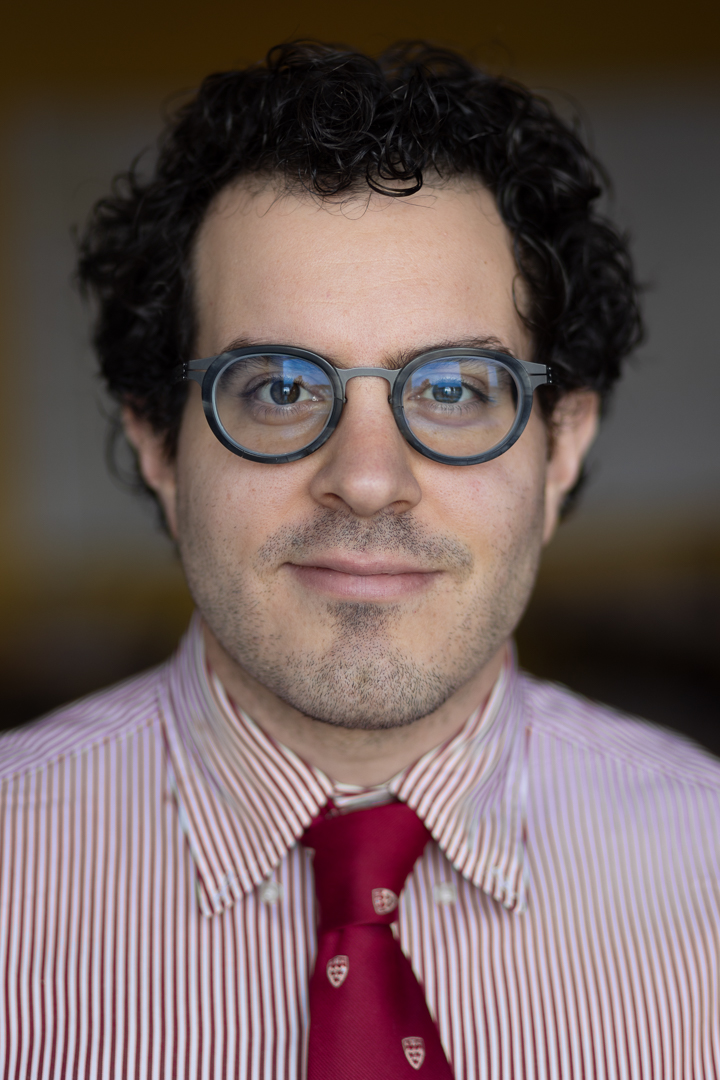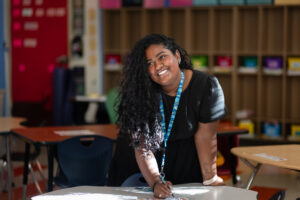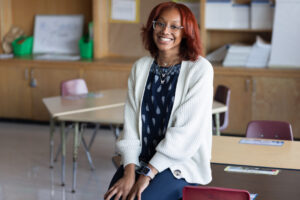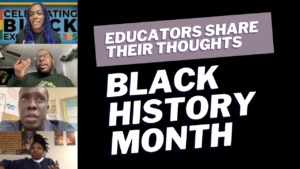I grew up in New Jersey. I was born in Brooklyn, and my parents own a pizzeria in Manhattan. I spent a considerable chunk of my teenage years helping out at the pizzeria.
I was a terrible student in high school. Just awful. These kids think they’re bad… I was so much worse, in and out of school. I just wasn’t a good kid.
I didn’t apply to any colleges while I was in high school. Somebody applied to community college for me. I still don’t know who applied. I never met with the guidance counselor. I straight up don’t know how I got into community college. Then I was like, ‘Well, I guess this is my only choice.’
It was a really great community college. I started swimming, I started exercising. I realized that my life was all on me. I think high school allowed me to feel like I had a safety net. But if I failed at community college, what would I have? How would I survive? My parents would help me, but my parents weren’t thrilled that I was going there in the first place. So I felt like, ‘Okay, I really need to make this work.’ My grades were all A’s. I graduated with a 3.7 GPA.
Because I did that, I had a pretty good chance of getting into some great schools. I applied to Columbia, Cornell, and NYU. Then I applied to McGill, because I knew of a kid in high school who went there. There was no essay for the application. I’d been to Montreal before, and I loved it. I was like, ‘Well, why not try?’ and I got waitlisted.
At the last minute, I got in. It’s an awesome school. So I decided to go there. Oddly enough, I’m wearing their tie today. That’s kind of funny.
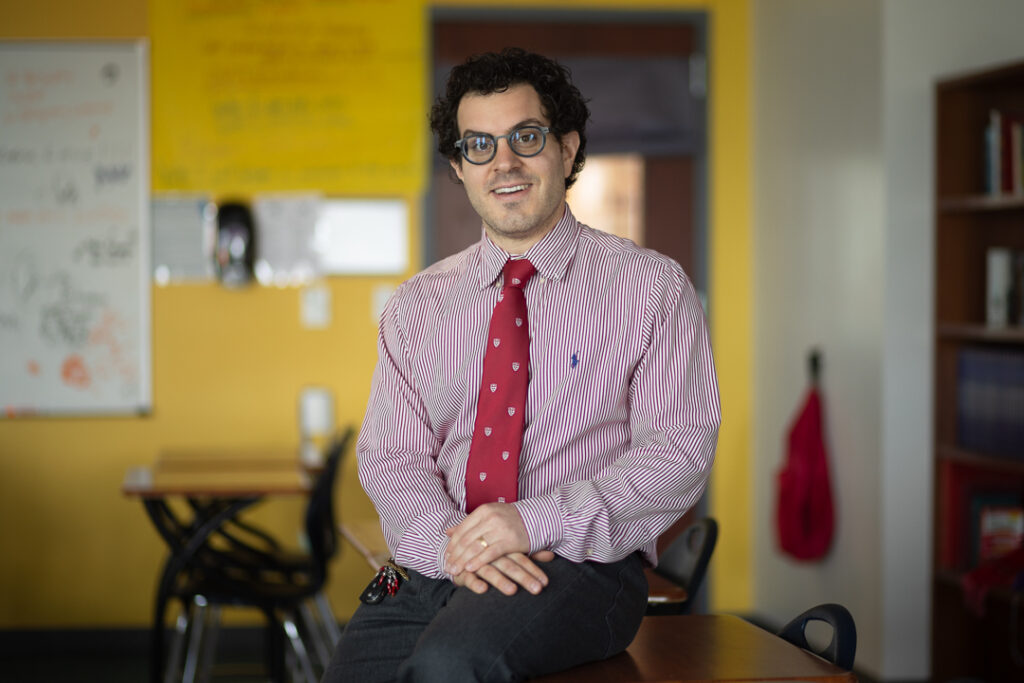
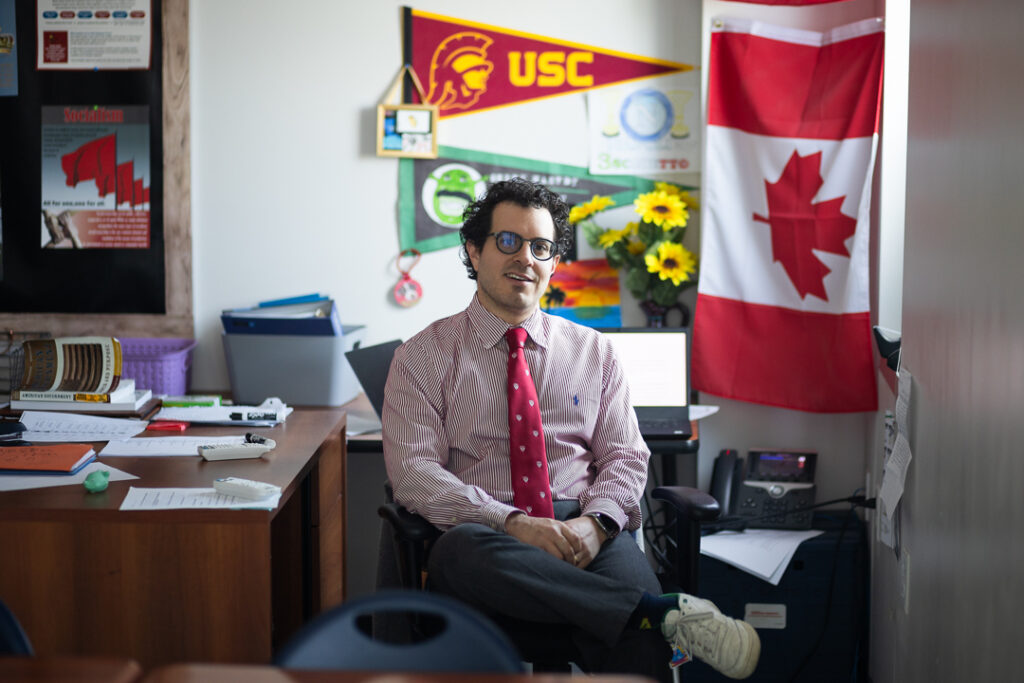
Once I was at McGill, I didn’t know what I wanted to do. I was studying religion. I decided I wanted to help in some way.
I started volunteering at a soup kitchen called Mile End Mission. Once or twice a week, I would cook meals for 70 to 100 people. It was awesome. I loved it. But it wasn’t quite how I wanted to give back. I started taking some education classes. I thought it could be for me.
I graduated with my bachelor’s in religious studies. At the time, I was dating this girl on Vancouver Island. Her dad was a principal at an International Baccalaureate school. We started talking and he gave me some advice. Then I applied for Teach for America and City Teaching Alliance, and I ended up at CTA (then Urban Teachers) in Dallas.
City Teaching Alliance had Johns Hopkins professors at the University of Dallas who taught their curriculum to us. I was able to get a master’s degree through them while student teaching and learning from a host teacher. So I was in the classroom all day, seeing how a certified teacher worked, and then I did graduate work at night.
I think the reason I got into teaching was because I wanted to give back, and I determined that education was the best way to give back in terms of making a sustainable difference over a long period of time. It felt like I could have maximum impact giving back while also having sustainable income. I’m able to live comfortably and create positive change. I can give and give but also buy a house. Education has been the best of both worlds for me.
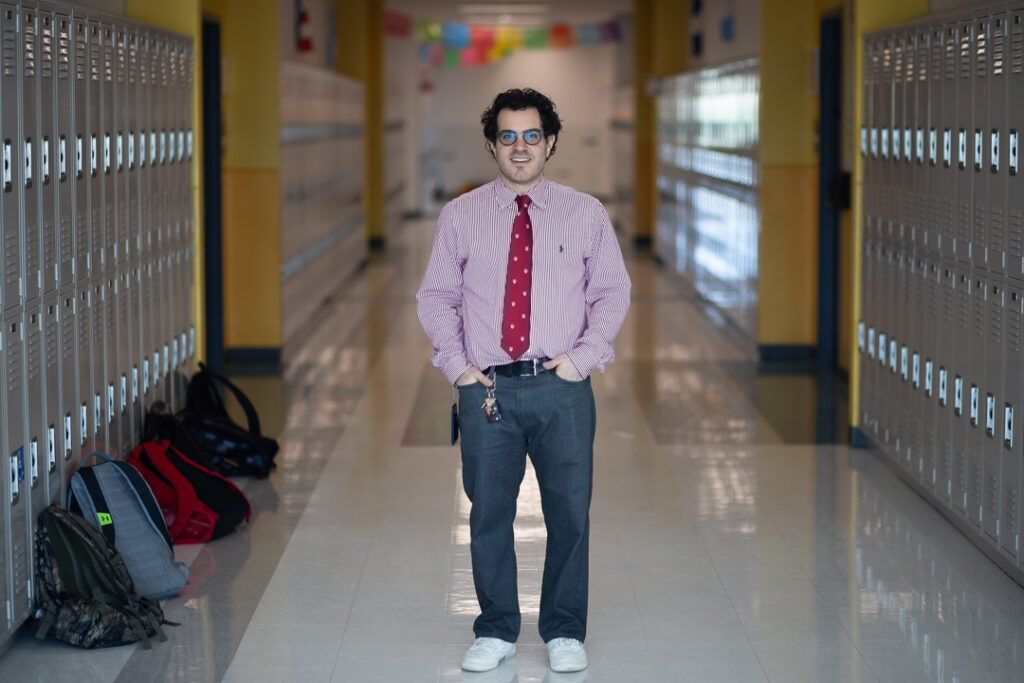
If I was teaching myself in high school, I would have spent time building a relationship with me. I remember this one teacher, Mrs. Timpson. She was the first teacher to show me that our government could be a little bit corrupt, and how the world actually works. She asked, ‘Who are you?’ She got to know me as a person. I got an A in her class, because I cared.
I try to form the best possible relationships with kids and ask who they are. I feel that’s what I needed in high school and what got me to care about Mrs. Timpson’s class, because she cared about me as a person. I know quite a bit about the students. I know where they’re coming from. I know their histories and where they’re at.
My first group of kids I taught were ninth and tenth graders, for English. Then the pandemic hit during their junior year. Their senior year when we all came back to campus, one of them got into University of Pennsylvania. Another girl I taught went to University of Chicago, and we were so excited.
The day-to-day is hard sometimes, because you don’t see the fruits of your labor with students. But I think over a long period of time, you see it come to fruition: ‘Oh my god, it was so worth it. It was worth putting in the extra effort for you.’
That reaffirms why I want to teach. I truly do have fun. On Thursday, the class made bills that they wanted to turn into laws, and I had a blast with them. Every block schedule day, my first period class gets to eat snacks at their desk at 8:40. They deliberated the bill back and forth until it passed both the House of Representatives and Senate. I was the President and signed off on it. We went through multiple rounds of the House of Representatives and Senate and I vetoed it a bunch of times first.
Teaching high school, I get to see how students are also people. I don’t know if I could ever teach primary school, because they don’t know who they are yet, but I love helping high schoolers figure out who they are.
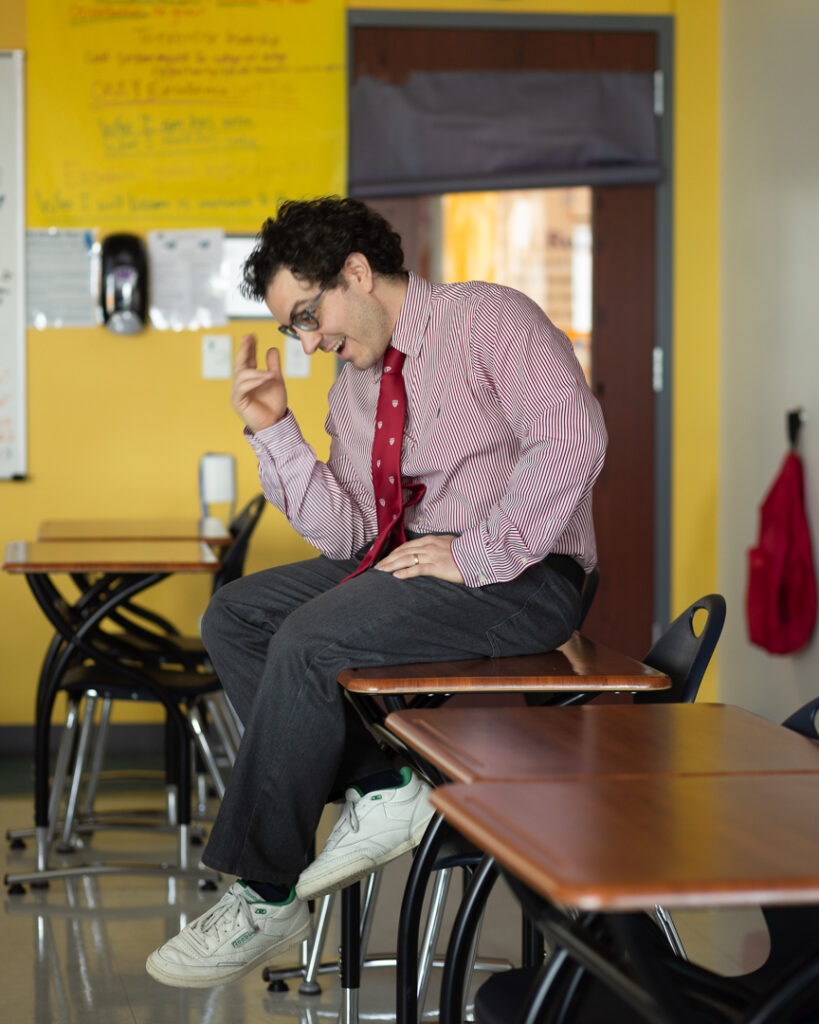
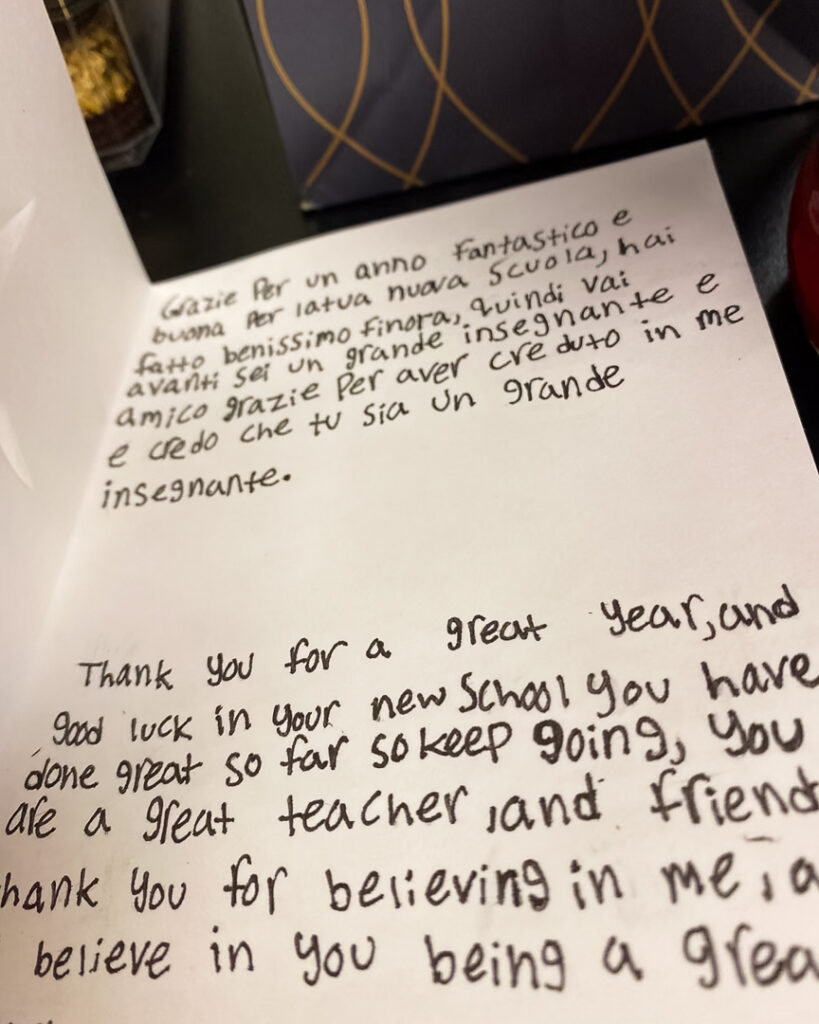
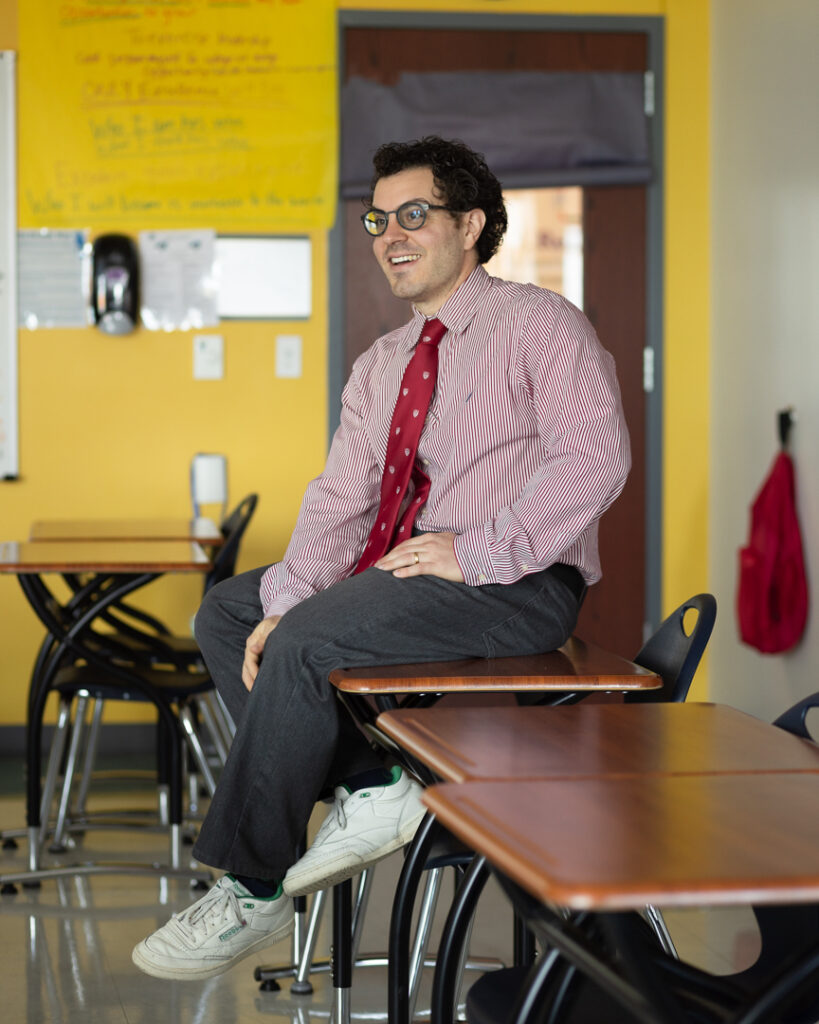
I try to make learning as close to the real world as possible. I’m a Government teacher, so it’s very easy to apply what we’re learning. By showing them the real world, it makes school more real for them. Maybe more substantial. When I was in school, I didn’t realize how school connected to everything that I was going to do.
I try to stay neutral in Government and have them figure out themselves what I might believe. Sometimes I slip, because I’m human. I think that’s only fair, right? But if we have class debates, I choose the side I disagree with. I argue against the side I agree with.
For example, during the gerrymandering lesson in my third period, they drew this map that clearly disenfranchised the Democrats in Texas. I argued that the Democrats would do the exact same thing if they could, without hesitation, to Republicans. I try to be as nonpartisan as possible and go back and forth and make them recognize that both sides have their flaws.
I also teach Economics, and I think Economics helps a lot with life lessons. You want to make 15 bucks an hour? Fantastic, let’s crank out what your salary is going to be after taxes. If you’re making $30,000 a year, you’re bringing home about $25,000. Here, let’s go look at rent for the area where you want to live. Are you able to swing it or not? No? Okay, what are you going to do? You need a bachelor’s degree to get most high-paying jobs, if not a master’s. So, what’s your plan? That’s a real lesson that I taught last year. I had them do their taxes all the way through, which was awesome. It was fantastic.
I like showing them how the world is going to work as bluntly as possible. Because I think that if we want them to be the change that we want to see in the world, we need to show them what the world is actually like. We vote for President, but here’s the Electoral College. Ask them to think about what’s fair. Ask them to think about how a government can gerrymander or manipulate us into believing certain things.
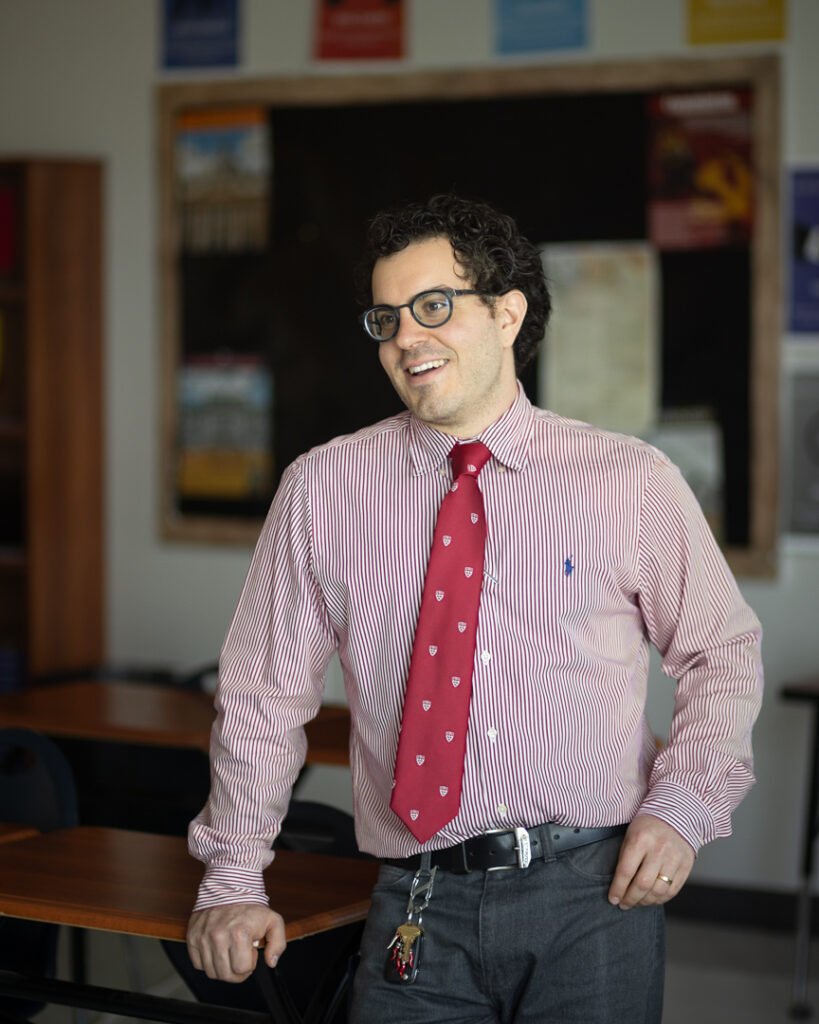
I started out teaching English because City Teaching Alliance offers Math or English certifications. I was a solid English teacher, but it was so, so much harder than teaching Government or World History. State tests are involved, which gives it an added stress level. I am very happy not to be teaching English now, but I would not be as good of a teacher if I hadn’t first taught English. If you can teach English, you can teach any subject.
I really like teaching Government. Part of why English was tougher is that it’s so abstract. So many kids couldn’t grasp the fiction, and I had to fill in the gaps so that students could understand what the book was about. I had to teach them how to write about what they just read — for example, write a paragraph about how this character feels and give me textual evidence to prove that. They had to make an inference on the text and then explain to me how that inference was in the reasoning. That’s very hard for kids to grasp.
History and Government are more concrete. Our World History curriculum was designed by a really great teacher, and as long as we get to the end goal at the same time, we have a lot of flexibility in how we teach the curriculum. In English, there’s not as much flexibility because you are either reading and teaching the book on pace or you’re not. History feels like it has a little bit of freedom and autonomy, but not so much where you get decision paralysis as a teacher. Right? Because sometimes having too much room for freedom is also not a good thing.
When I first started at this school, I told my boss, ‘Hey, listen, I can do one more year of this before I lose my patience with it.’ She honored that. Then she put me in Government, so I didn’t have to teach English anymore. I am truly grateful for her because I might have left if I had to do another year of English.
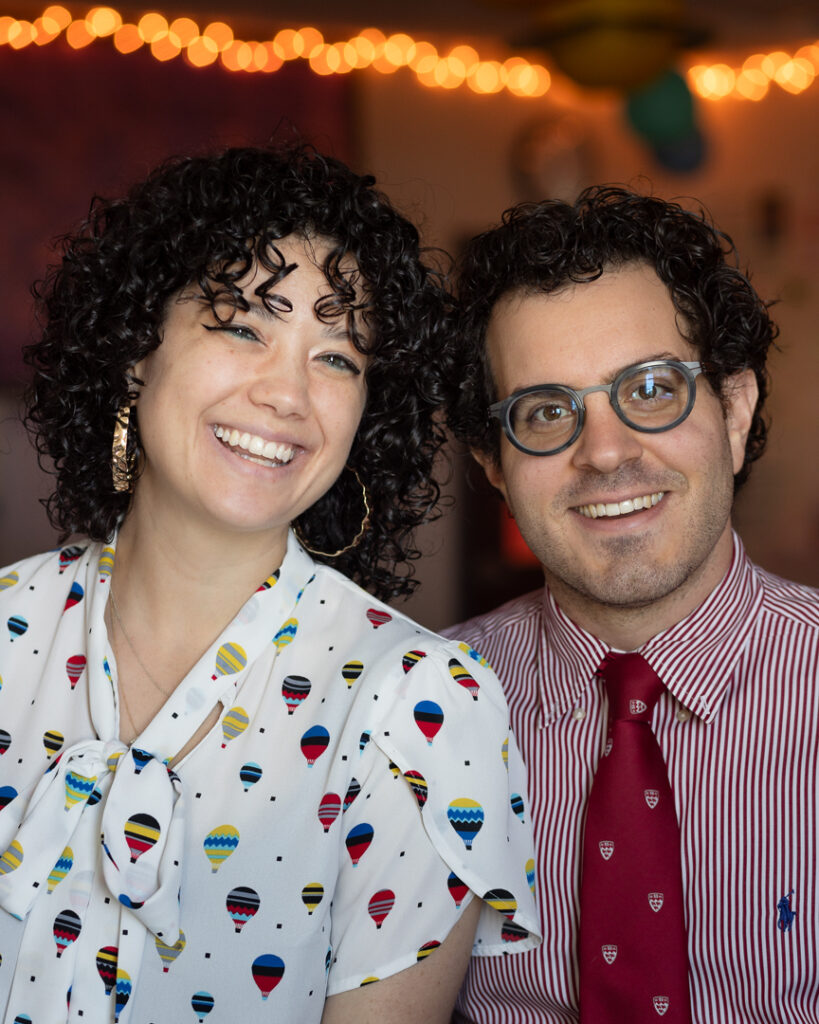
I’ve learned so much about discipline and consistency, having so much to do every day as a teacher. I have two presentations that I have to give three times a day, each day, for five days out of the week. That’s a lot of work in terms of being disciplined and consistent. I have a very strict routine. I work out every morning at 5:30. But that means I have to be in bed every night by 9:00, and if I don’t — if I’m not following that routine — I suffer in here.
My wife went to the University of Michigan, and I went to McGill. We both realized we wanted to teach, and we met on the first day of our prep program. It makes doing the job a lot easier, because I can ask her for advice and vice versa. We help each other out. It makes the kids a lot easier to manage. We can relate to each other. Every day I’m feeling rejected, she reinforces that it’s normal. It’s nice working with someone you trust so deeply.
Students have also made me way more compassionate as a person. I truly don’t know what’s going on outside of the classroom. I don’t know what’s going on in the kids’ lives. If a kid puts their head down and sleeps through the whole period, I’m not going to be nasty. I used to slam the book on the desk. I’m not going to do that anymore, because I learned that, hey, maybe we have something pretty serious going on at home that I might not know about. And maybe we need to check in with that, right? I can’t keep being aggressive over something that is out of my control.
I’ve learned how to work hard, after student teaching while getting a master’s, staying up late writing papers, and then waking up at six in the morning to go teach. Nothing fazes me after that, right? I can handle stress more now, to some degree.
At the end of the day, I believe that education should be trying to be the middle ground between how the world is and how we portray it. We should try to communicate how the world is as accurately as possible, because then the students won’t be so disillusioned when they get out.
–Salvatore Dibartolo
Teacher at Uplift Elevate High School
City Teaching Alliance Fellow, Cohort 2017
Fort Worth, TX
